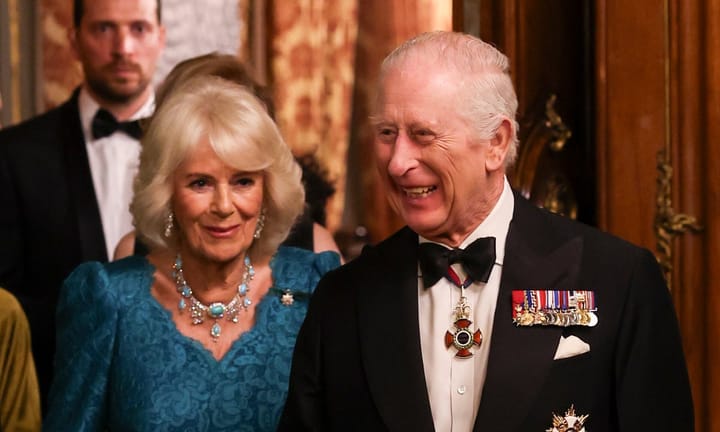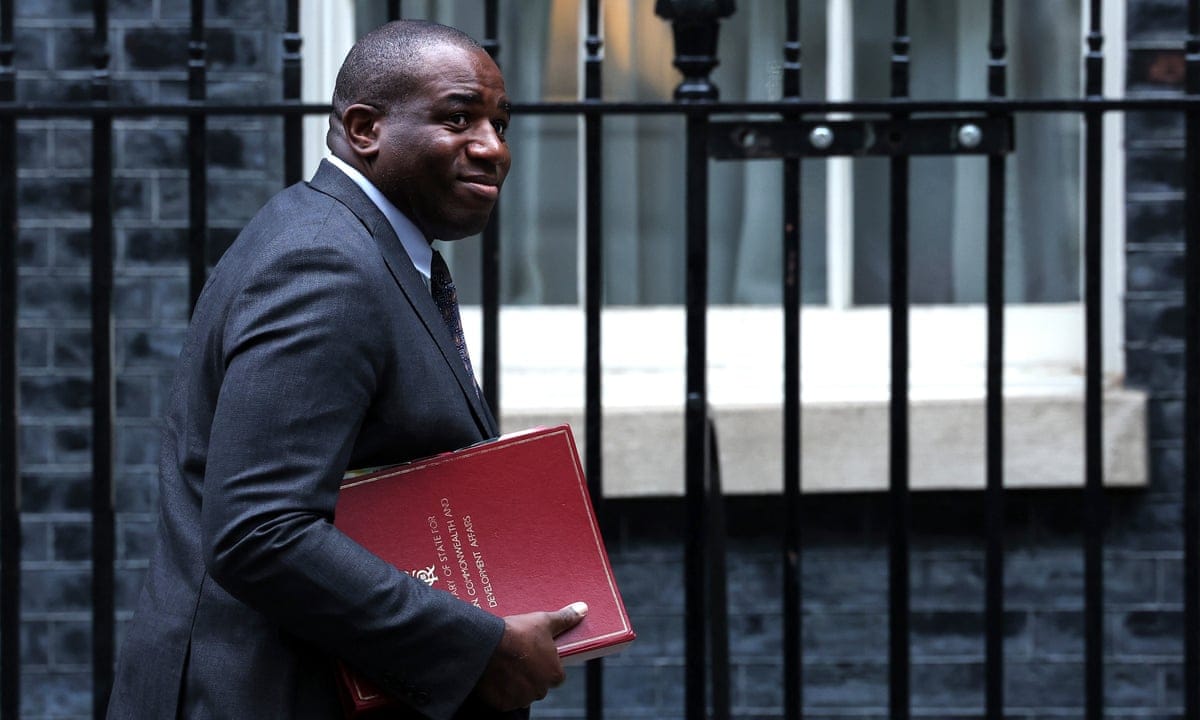The UK Labour Party has altered its previous hardline against Beijing on how China deals with a specific ethnic minority, ahead of David Lammy's visit to the nation this weekend.
The foreign secretary is set for arrival in Beijing starting Friday for high-level discussions before heading over to Shanghai next Saturday.
This journey signifies an evolution in UK government’s stance towards China with policymakers aimed at enhancing interaction and strengthening economic bonds, as the trade value between both nations stands around £110bn annually.
Key figures within the administration express optimism about their diplomatic approach, highlighting that allies such as America and Europe have maintained high-level engagements with China in recent times while UK has lagged behind.
Part of this recalibrated diplomacy includes Labour's changed position on Beijing over its treatment towards the Muslim minority ethnic group located in Xinjiang, where there are longstanding allegations about torture and forced labour among other severe human rights issues being reportedly conducted under "re-education" camps. The Chinese government defends these establishments as measures to quell terrorism threats.
Labour's new direction also includes a shift away from its prior insistence on China acknowledging their actions towards the minority group, now seen by Labour officials and external sources alike, less pressing due in part to potential complications at international judicial levels where consent of involved parties is typically necessary for proceedings.
At an event hosted by Fabian Society last year (2023), Lammy still voiced that pursuing legal routes with partners was Labour’s stance and they would "act multilaterally". However, a government representative clarified on Wednesday: “Genocide is typically for competent international courts to decide."
The Foreign, Commonwealth & Development Office asserts their strong positioning regarding human rights including within Xinjiang where China persistently subjects and arbitrarily detains this specific minority group. It also highlights efforts being made by the government at raising such concerns with top Chinese officials whilst coordinating joint initiatives to hold Beijing accountable for these alleged violations of basic freedoms.
Despite Labour's revised position, their visit plans were confirmed on Thursday via a spokesperson from China’s foreign ministry.
An insider briefed about the trip mentioned that they perceive an overall positive and serious attitude towards engagement with Beijing compared to previous governments while maintaining boundaries of such interactions, indicating Labour's approach as more successful than their predecessors'. This aligns closely with Chancellor Reeves’ agenda plans for China which involve the restoration of two key economic platforms: The Economic and Financial Dialogue alongside the Joint Economic & Trade Commission.
Labour also intends to cooperate on climate crisis mitigation efforts, despite Beijing's position as a major polluter worldwide—a contentious issue which will continue drawing internal party pressures within Labour over China’s actions in Hong Kong and Xinjiang regions of the country.
Lammy had earlier met with his Chinese counterpart Wang Yi during their meeting at Laos, touching upon topics such as human rights concerns, Ukraine crisis along with parliamentarians subjected to sanctions from Beijing among others.
Rahima Mahmut expressed disappointment for Labour's change in course: “In opposition times it was accurate when we labelled the suffering of my people genocide; now they are not fulfilling their promise regarding recognition with allies at UN.” She further lamented, "No words can fully capture our community’s distress."
Read next

Dominican Republic halts rescue efforts following devastating ceiling failure at nightclub incident
Rescue teams in the Dominican Republic on Wednesday concluded their search for survivors following a catastrophic nightclub roof collapse—this marks one of its most tragic disasters over recent years, with confirmed death toll rising beyond 180 individuals within this Caribbean nation.
Authorities announced an additional count of 60 fatalities

Angelica Huston Discloses Past Cancer Diagnosis; Now Fully Recuperated and Clear of Disease
Anjelica Huston disclosed her cancer diagnosis six years ago after the release of her 2019 film John Wick: Chapter 3 – Parabellum. The actress prefers not to divulge specific details about the type of cancer she faced but expressed pride in overcoming this serious health challenge, which required significant changes to

Royal Visit: King Charles and Queen Camilla Surprise Papal Counterpart at Recovery
The British monarch Charles and his consort Camilla paid an unexpected visit to Pope Francis during their four-day official trip across Italy.
They met with the pontiff at his residence within Casa Santa Marta inside Vatican City where he recovers from a severe lung infection caused by pneumonia, which had

